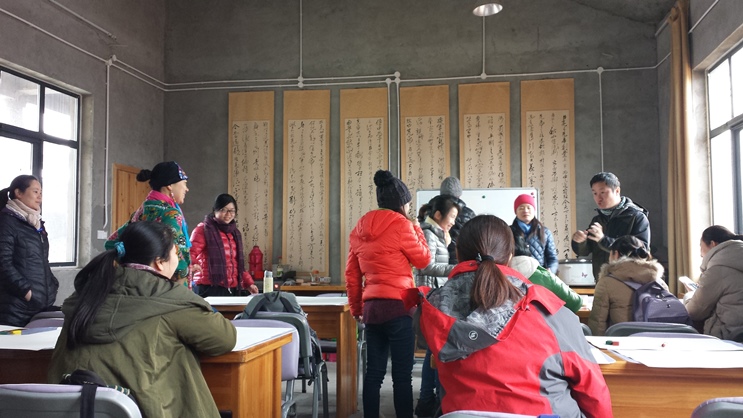Single News
The challenge of Waldorf
Being a Waldorf teacher is a challenge which means that Waldorf education in China has found it difficult to retain teachers. Two courses run by Emerson College in China aim to reverse that process, as Binjie Hou describes.
Emerson College is running two foundation programmes in China in partnership with educational centres in Guangzhou and Zhengzhou. The programmes consist of six two-week seminars spread over two years. Here, Binjie Hou, manager of one of these partner organisations, describes the background and launch of the programme.
GUANGZHOU (NNA) – Waldorf education landed in China 11 years ago. One of the biggest training centres, Guangzhou Waldorf Training Centre, was founded in 2008 by Jennifer Ouyang and has educated about a hundred Waldorf teachers for southern China.
Through these years of teacher training programmes, we found that few participants would actually work in the front line of teaching and management positions after graduation, and even fewer who joined Waldorf schools subsequently persevered in the long term.
It is a great challenge both physically and mentally for a teacher to put into practice such creative education with full vitality – not only in the content of the learning but also in the width, depth and intensity of this work which requires that a teacher maintains constant self-renewal, transformation and great effort to keep balance.
Many teachers meet hardships and frustration in their practice. But how do the tutors, aged over 60, who came to China still keep such fresh and vital life forces? Finally we realised we must put down the root of anthroposophy deeply.
A wider perspective
With the aim to fully understand anthroposophy, Jennifer therefore began to inquire of Emerson College whether it is possible to design an anthroposophical foundation course for us from a more comprehensive perspective and wider vision. It should include anthroposophical theory and its applied fields, impart application methods in daily life and work, and provide new possibilities for career planning and life direction to help participants not only to carry heavy burdens but also enjoy the striving process.
On 26 August 2015, we formally began Module 1 of the anthroposophy foundation course. Sixty-four participants from all walks of life joined in, among them several principals of large national kindergartens. The feedback showed that they learnt a lot from listening exercises and non-violent communication, felt more determined, got along with people more comfortably, communicated with each other more easily, and respected others and themselves.
In Module 2, 64 participants also joined from all walks of life. More principals of kindergartens came wishing to apply anthroposophical theory in their work. The feedback on career planning and Goethean observation was that they were clearer about self-development and knew better how to plan their own work.
Looking for new ways
Many people in China are looking for new ways in education. Participants coming to our foundation course include teachers, parents, engineers, and librarians. At first they want to know what on earth the anthroposophy guiding Waldorf education is, and in the courses they begin to learn about themselves and their own journey.
In line with the title of this foundation course: “Cultivating Wisdom: Spiritual Science and Social Arts”, we expect that more good content will be introduced in all modules, and also that the theory of anthroposophy will be planted in everyone’s soul to arouse the full joy of being human.
END/nna/cva
This article was published with kind permission of Emerson College and appeared first as a blog on the Emerson College website.
Item: 160427-02EN Date: 27 April 2016
Copyright 2016 News Network Anthroposophy Limited. All rights reserved.

